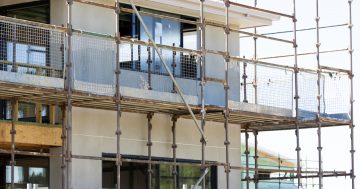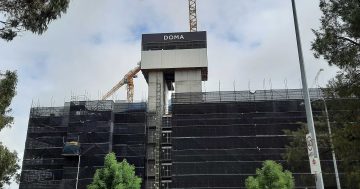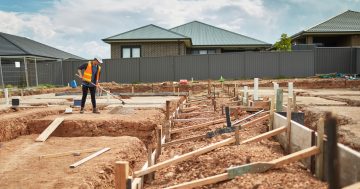
Company directors will no longer be able to shut down their companies after producing below standard work and leaving the cost of rectification to building owners. Photo: File.
The Master Builders ACT has accused the Government of introducing one of the most draconian building laws in the country after bringing a bill before the Legislative Assembly on Thursday that will make company directors personally liable for building defects.
Master Builders ACT CEO Michael Hopkins also accused the Minister for Building Quality Improvement, Gordon Ramsay, of putting politics ahead of genuine industry reform by failing to engage with key stakeholders.
“After calling for building reform for a decade, the MBA has been blindsided by the Minister who has introduced this Bill with no industry or stakeholder consultation,” Mr Hopkins said. “Failing to engage with key stakeholders on major reforms never produces optimal results.”
Mr Ramsay said company directors would no longer be able to manipulate the system by shutting down their companies after producing below standard work and leaving the cost of rectification to building owners.
“The amendments will prevent corporations from undermining the system and deliberately avoiding their regulatory obligations by winding up their company,” Mr Ramsay said.
“There have been instances where building corporations have produced substandard buildings, and when called to account, they have closed their business.”
The legislation allows rectification orders to be issued to the directors of licensed corporations that make directors liable for unpaid financial penalties.
Building owners will be further protected by new provisions that allow the publication of information on the Construction Occupations Registrar.
“These changes are important for the ACT and further support the range of building regulatory reforms already introduced by the ACT Government to improve practices across the building industry,” Mr Ramsay said.
But Mr Hopkins said the Minister had acted unilaterally to introduce a law which was not recommended by the Building Confidence Report or even contained within the ACT’s building reform program.
“It has been less than 100 days since the building ministers from every State and Territory agreed to a national approach to implement the recommendations of the Shergold Weir Report,” he said.
Mr Ramsay had earlier dismissed the report as unlikely to solve the issue of defects when he addressed the building quality inquiry at the Legislative Assembly on 4 September.
Mr Hopkins said existing laws already gave the ACT Building Regulator powers to take action against licensed builders and building companies.
“Introducing new laws will amount to nothing if the Government fails to enforce the powers they already have,” he said.
“Despite the ACT Government withdrawing from stakeholder engagement, the MBA will request an urgent meeting with the Minister so that the draft laws can be explained to the local industry.”
The MBA will also seek clarification as to whether these laws conflict with the Corporations Act or any other Commonwealth laws.
Other amendments introduced in the bill include:
- Powers for building inspectors to direct builders and landowners in relation to non-compliant building work
- Provisions that allow people to enter into enforceable actions to rectify work
- Clear requirements for licensed corporations to have an effective system of management.
The Building and Construction Legislation Amendment Bill 2019 has been referred to the Standing Committee on Economic Development and Tourism, which will have to report back to the Assembly by 26 November.




















